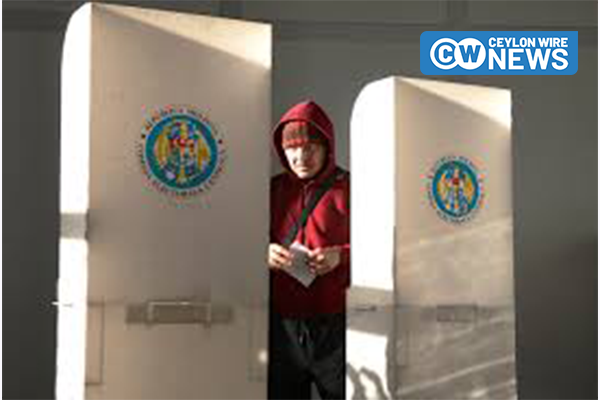Moldovans headed to the polls on Sunday for a presidential election amid allegations of foreign interference, with the vote potentially shifting the country’s trajectory toward either closer ties with the European Union or renewed Russian influence.
Pro-Western incumbent Maia Sandu, who has accelerated Moldova’s path toward EU integration, faces challenger Alexandr Stoianoglo, a former prosecutor general backed by the pro-Russian Socialist Party. Sandu initiated Moldova’s EU accession talks in June, making the election outcome closely watched in Brussels, especially following Georgia’s recent re-election of a ruling party with pro-Russian leanings.
Polling stations opened at 7 a.m. and will close at 9 p.m., as Moldova’s future takes center stage amid the ongoing conflict in neighboring Ukraine. Stoianoglo claims to support EU integration while also advocating for balanced ties with Russia, including efforts to negotiate cheaper Russian gas. He has expressed willingness to meet with President Vladimir Putin if Moldovan citizens desire it.
“I voted for a free, stable, and thriving Moldova that develops in harmony with both the West and East,” Stoianoglo said after casting his vote.
The election is expected to set the tone for parliamentary elections next summer, where Sandu’s party may struggle to maintain its majority. This year’s presidential race, according to voter Mihai David, 58, is among the most significant in decades, representing a choice between diverging paths for Moldova.
Sandu has portrayed Stoianoglo as a Kremlin-backed figure, describing the election as a choice between a prosperous future in the EU by 2030 or a return to instability. In contrast, Stoianoglo criticizes Sandu’s approach as divisive, claiming she neglects the interests of ordinary Moldovans in a country split between a Romanian-speaking majority and a sizable Russian-speaking minority.
Allegations of Interference Resurface
In response to concerns of election interference, Moldovan authorities have cracked down on suspected vote-buying schemes allegedly orchestrated by Russia-backed oligarch Ilan Shor, now a fugitive residing in Russia. Shor, who denies any wrongdoing, has actively called on social media for Moldovans to vote against Sandu, reportedly offering incentives.
Moldova also alerted EU nations to potential disruptions targeting polling stations for Moldovan expatriates in countries like Italy, France, Germany, Spain, Canada, Romania, the U.S., and the U.K. Authorities suspect tactics like bomb hoaxes may be used to deter voting in pro-European strongholds.
In the EU referendum last month, pro-EU supporters won narrowly with 50.35%, and Sandu led the first round of the presidential race with 42% of the vote, while Stoianoglo trailed with 26%.
Stoianoglo is expected to gain support from Moldovans dissatisfied with Sandu’s economic policies, especially as Moldova grapples with high inflation and the lingering effects of the pandemic and Russia’s war in Ukraine. Sandu’s campaign slogan, “Save Moldova,” has been countered by the opposition’s retort: “Save Moldova from Sandu.”









